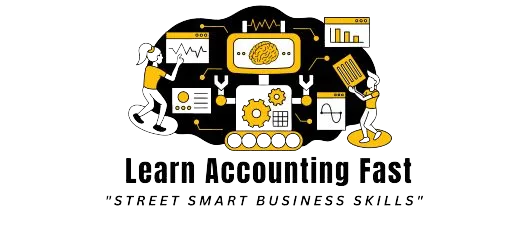10 Steps to Create Your Social Media Strategy for Small Business
Creating a social media strategy for your small business can seem daunting, but it's simpler than you think. A solid strategy can help you reach more customers, build your brand, and drive sales. Follow these steps to create an effective social media marketing plan.
Here’s a comprehensive guide on how to create your marketing plan.
Define Your Goals
First, know what you want to achieve. Do you want to increase brand awareness, drive traffic to your website, or boost sales? Clear goals will guide your strategy and help you measure success.
Action Tip: Write down your main goals. For example:
Increase brand awareness
Drive website traffic
Boost sales
Understand Your Audience
Know who your customers are. Understanding their needs and interests will help you create content that resonates with them. Use tools like Google Analytics to gather data about your audience.
Action Tip: Create customer personas.
Customer personas are fictional characters that represent different segments of your audience. They help you visualize and understand your customers better.
How to Create Customer Personas:
Demographic Information: Age, gender, location, income level, education.
Psychographic Information: Interests, values, lifestyle, attitudes.
Behavioral Information: Buying habits, social media usage, preferred communication channels.
Pain Points and Needs: Challenges they face and how your product or service can help them.

For Example :
Name: Sarah, the Savvy Shopper
Age: 28
Gender: Female
Location: New York City
Income Level: $60,000 per year
Education: Bachelor's degree
Interests: Fashion, fitness, travel
Buying Habits: Shops online frequently, follows fashion influencers, prefers eco-friendly products
Social Media Usage: Active on Instagram and Pinterest, occasionally uses Facebook
Pain Points: Wants stylish yet affordable clothing, cares about sustainability
Needs: Easy access to eco-friendly fashion brands, discount offers
Choose the Right Platforms
Not all social media platforms are the same. Choose the ones where your audience spends the most time. For small businesses, popular platforms include Facebook, Instagram, Twitter, and LinkedIn.
Action Tip: Research where your audience is most active. Focus on 2-3 platforms to start.
Create Engaging Content
Content is king in social media marketing. Share posts that inform, entertain, or inspire your audience. Use a mix of text, images, and videos to keep things interesting.
Types of Informative Content:
How-to Guides and Tutorials: Create step-by-step guides or video tutorials that teach your audience how to use your products or services. For example, a beauty brand might post makeup application tutorials.
Industry News and Updates: Share the latest news, trends, and developments in your industry.
Industry-Specific News:
IndustryWeek - Covers news and analysis for manufacturing professionals.
Construction Dive - Provides news and trends in the construction industry.
AgFunderNews - Focuses on news and insights in agtech and food innovation.

This keeps your audience informed and positions your brand as a thought leader.
FAQs and Tips: Answer common questions and provide useful tips related to your products or industry. This can help address customer concerns and improve their experience.
Types of Entertaining Content:
Behind-the-Scenes: Give your audience a glimpse of what happens behind the scenes at your company. This humanizes your brand and makes it more relatable.
Humorous Posts: Share funny memes, jokes, or lighthearted content that resonates with your audience's sense of humor.
User-Generated Content: Encourage your customers to share their experiences with your products and repost their content. This not only entertains but also builds community.
Use Hashtags Wisely
Hashtags help people find your content. Use relevant hashtags to increase the reach of your posts. Research popular hashtags in your industry and use them in your posts.
Action Tip: Use tools like Hashtagify to find trending hashtags.
Engage with Your Audience
Social media is about building relationships. Respond to comments, messages, and mentions. Show your audience that you care about their feedback.
Action Tip: Set aside time each day to interact with your followers.Use tools like Sprout Social to manage interactions.
Analyze Your Performance
Track your social media performance to see what works and what doesn’t Use analytics tools to measure engagement, reach, and conversions. Adjust your strategy based on these insights.

Action Tip: Use the built-in analytics tools on each platform. For more detailed analysis, try Google Analytics.
Stay Consistent
Consistency is key in social media marketing.
Post regularly and at optimal times. A consistent presence helps build trust with your audience.
Action Tip: Use a scheduling tool like Later or CoSchedule to plan and automate your posts.
Run Social Media Ads
Paid advertising can boost your reach and engagement.
Start with a small budget and test different ad formats.
Ad Creation: Content Mix: Value Ads: Provide valuable information that prospects can use.
Demonstration Ads: Showcase your ability to deliver the service (e.g., portfolio images, accreditations).
Client Testimonials: Include written or video testimonials to build credibility.
Call to Action Ads: Encourage prospects to take the next step (e.g., inquire about services, sign up for a newsletter).
Format: Mix different formats like videos, carousels, podcasts, and articles. Monitor the performance and optimize your ads for better results.
Action Tip: Try running ads on Facebook and Instagram. Use Facebook Ads Manager to create and manage your ads.
Create Your Ads:
Ad Format: Choose the ad format that best suits your content.
Options include:
Single Image or Video: Great for quick tips, testimonials, and demonstration videos.
Carousel: Use this format to showcase multiple tips, features, or products in a single ad.
Slideshow: Create a video-like experience using multiple images.
Collection: Ideal for product showcases or step-by-step guides.
Ad Creative: Create compelling visuals and copy for your ads. Ensure your content provides value, demonstrates expertise, showcases testimonials, or encourages a specific action.
Call to Action: Include a clear call to action (CTA) like “Learn More,” “Sign Up,” or “Watch Now.”
Keep Learning
Social media trends change quickly. Stay updated with the latest trends and best practices. Follow industry blogs and take online courses to improve your skills.
Action Tip: Check out resources like Social Media Examiner and HubSpot Academy for tips and tutorials.
Conclusion
Creating a social media strategy for your small business doesn't have to be complicated.
Define your goals, understand your audience, and choose the right platforms.

Create engaging content and use hashtags wisely.
Engage with your audience and analyze your performance. Stay consistent and consider running social media ads. Keep learning to stay ahead of trends.
By following these steps, you can build a strong social media presence that drives results. Start today and watch your business grow!
Are you ready to take your social media strategy to the next level?
Check out these tools:
Start building your social media strategy today and set your smallbusiness up for success!
It's time to thrive in these trying times by taking advantage of thisopportunity for personal growth.
Be the greatest you can be…
Join us, click the link below for short, sharp, simple video courses that give you confidence and street-smart business skills to succeed.
Latest Posts
The Six Laws of
Wealth Creation
The Six Laws of Wealth Creation. These timeless actions work in 2025’s rapid-change environment and give you calm, repeatable steps to grow money.....
How to Read Business
Financial Reports
A Story of Business Secrets Hidden in Reports
Sarah sat in her office staring at a thick folder of financial reports. Sales, costs, cash flow....
The Millionaire
Mind in Action
Timeless Wealth, Flow, and Power from Robert Kiyosaki,Frank Kern, Tony Robbins
and Open Ai......
Why Cost Control Is the Forgotten Key to Profitability
Most entrepreneurs chase sales growth like it’s the only thing that matters.They spend thousands on ads, new products, and fa ncy offices.....
Master Prompts For
Financial Analysis
The Complete Small Business Guide to Financial Analysis: Formulas, Examples, and Tips.These are super-powerful questions you can ask an AI to help..
How To Solve Any Business
Problem With Ai
AI can help you solve all of these faster, smarter, and more affordably, if you know how. This guide will show you exactly how to do that.........
Disclaimer: The content shared on this blog and in these videos is for informational and educational purposes only. Despite my 30 years of experience as a business owner, I am not a certified financial advisor, accountant, or legal professional. The insights and tips shared are based on personal experiences and should not be taken as professional financial or legal advice. For financial, legal, or professional advice, please consult with a certified professional in the respective field. I disclaim any liability or responsibility for actions taken based on any information found in this blog or these videos.
Copyright Learn Accounting Fast - All Rights Reserved 2025









Facebook
Instagram
X
LinkedIn
Youtube